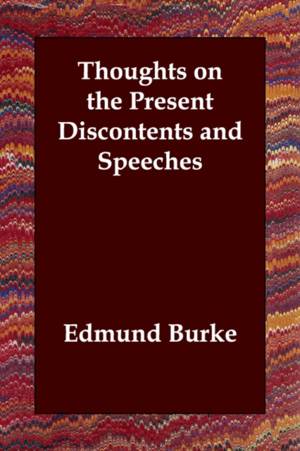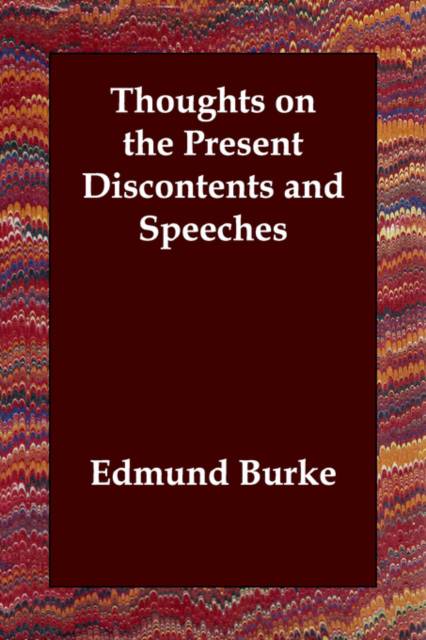
- Afhalen na 1 uur in een winkel met voorraad
- Gratis thuislevering in België vanaf € 30
- Ruim aanbod met 7 miljoen producten
- Afhalen na 1 uur in een winkel met voorraad
- Gratis thuislevering in België vanaf € 30
- Ruim aanbod met 7 miljoen producten
Zoeken
Omschrijving
Edmund Burke (1729-1797) was an Anglo-Irish statesman and philosopher. Born in Dublin, one of only four children to survive from a family of 15, he entered Trinity College, Dublin in 1744, graduating BA in 1748 and MA in 1751. In 1750 he came to London, to the Middle Temple, and in 1756 became known as a writer for two pieces, one a pamphlet called A Vindication of Natural Society, the other his Essay on the Sublime and Beautiful. He married in 1757 and the following year made the acquaintance of Samuel Johnson with whom he soon formed a close friendship. Following the birth of his son in 1758 he suggested the plan of The Annual Register, a record of the year's major events, which he edited as a means of supplementing his income. From 1761-65 he served as private secretary to the Chief Secretary to Ireland, and in July 1765 became private secretary to the newly appointed Whig Prime Minister, Lord Rockingham. Burke then entered Parliament as member for Wendover, taking his place among the leading speakers in the House. After the Rockingham Ministry went out in July 1766, Burke penned a defence of its policy and in 1769 wrote the pamphlet Thoughts on the Present Discontents which was published in 1770 with four editions issued before the end of the year. Whilst his allegiance to Rockingham caused him to write it, he based his argument upon essentials of his own faith as a statesman and it marked the beginning of his prominence as a political thinker. Reprinted from the Cassell & Co edition of 1886, which also includes a selection of his speeches.
Specificaties
Betrokkenen
- Auteur(s):
- Uitgeverij:
Inhoud
- Aantal bladzijden:
- 88
- Taal:
- Engels
Eigenschappen
- Productcode (EAN):
- 9781406800852
- Verschijningsdatum:
- 5/07/2006
- Uitvoering:
- Paperback
- Formaat:
- Trade paperback (VS)
- Afmetingen:
- 152 mm x 229 mm
- Gewicht:
- 140 g

Alleen bij Standaard Boekhandel
+ 16 punten op je klantenkaart van Standaard Boekhandel
Beoordelingen
We publiceren alleen reviews die voldoen aan de voorwaarden voor reviews. Bekijk onze voorwaarden voor reviews.











